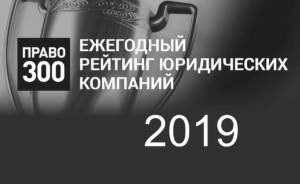From June 1, 2019, the third amnesty of capital takes effect in Russia (the “Amnesty 3.0”). An analysis of the conditions of Amnesty 3.0 shows that the declarants are placed in more stringent conditions compared to previous capital amnesties, since it will be much more difficult to take advantage of the new amnesty.
So, if you did not manage to declare your controlled foreign company (the “CFC”) during the first two amnesties of capital, then exemption from liability (tax, administrative, criminal) under Amnesty 3.0 can be obtained only if such CFC is redomiciliated (re-registered from one jurisdiction to another) to special administrative areas as an international company. At the same time, you must declare all your CFCs and provide the tax authority with an assurance that you have no other undeclared companies.
What is an international company?
An international company (“IC”) shall be a CFC, which has been re-registered from a foreign jurisdiction to the Russian Federation and entered into the Unified State Register of Legal Entities (“EGRUL”) as an LLC or JSC subject to the following conditions (These criteria make it possible to qualify a company as an international holding company within the meaning of Article 24.2 of the Tax Code, which allows to count on the application of the tax benefits described below):
- the CFC was registered until January 1, 2018 in the country that is on the list of the FATF (Financial Action task Force (official website: https://www.fatf-gafi.org/)) and the MONEYVAL (Committee of Experts on the Evaluation of Anti-Money Laundering Measures and the Financing of Terrorism (official website: https://www.coe.int/en/web/moneyval/home). Popular offshore island jurisdictions, such as the Marshalls, British Virgin Islands, Cayman Islands, are not included in these lists;
- the CFC is a commercial organisation with participants and is not linked to credit or other financial organisations;
- the CFC carries out business activities in several countries, including the Russian Federation, independently, either through its directly / indirectly controlled entities, or through branches and representative offices;
- within 6 months after making an entry about registering the IC with the EGRUL, it should be excluded from the register of the country of its establishment;
- the IC agrees to invest in Russian business (for example, by investing in the authorised capital or property of business entities) 50 million rubles within 6 months from the date of re-registration in Russia. Investments can be made on the basis of a letter of intent, an investment contract, a concession agreement, a PPP agreement or another contract;
- the declarant gained control over the CFC until January 1, 2017 (i.e., until that date he was considered the controlling person of the foreign company on the basis of direct or indirect ownership of more than 15% of shares / stocks (for individuals it means together with spouses and minor children)).
After registration in the Russian Federation, an IC acquires the status of a Russian legal entity and, accordingly, a Russian tax resident, which means the occurrence of standard tax obligations, taking into account the benefits listed below.
Benefits of registering and doing business as an IC
- if an CFC is registered as an IC, it is exempted from taxing the profit of the CFC. If an IC owns another CFC, then the IC also does not pay profit tax from its CFC;
- a Russian tax authority cannot conduct audits for periods prior to the re-registration of a CFC as an IC;
- zero income tax rate on the sale of stocks / shares of both Russian and foreign companies subject to all specified conditions of sale (such conditions are: a tenure of more than a year, a share of ownership of more than 15%, stocks / shares directly or indirectly consist of not more than 50% of real estate located in Russia; stocks / shares were not contributed to the capital of the IC and were not acquired by it as a result of reorganisation less than one year before or one year after receiving the status of an IC).
- if an IC owns shares / stocks that make up more than 15% of the company’s capital, for more than a year, dividends received by the IC are taxed at zero tax rate; It should be noted that zero rates do not apply to dividends received from foreign companies and (or) income from the sale of stocks / shares of companies registered in countries from the “black list” of the Ministry of Finance of the Russian Federation (Order of the Ministry of Finance of Russia dated November 13, 2007 No. 108n “On the Approval of the List of States and Territories Providing a Preferential Tax Regime for Taxation and (or) Not Providing for Disclosure and Submission of Information when Conducting Financial Transactions (Offshore Zones)”);
- there are no restrictions on foreign exchange transactions, no obligation to repatriate funds and other prohibitions for currency residents;
- if an IC is registered before December 31, 2019, securities / participatory interests are accepted for accounting at the market price on the date of registration of the IC;
- an IC can hide data on participants and director general in the EGRUL.
Despite the fact that Amnesty 3.0 places declarants in rather limited conditions, the redomiciliation of CFCs can be regarded as a promising tool for investing and maintaining your assets in a “transparent” jurisdiction. A definite advantage is that the transfer of a CFC to the Russian Federation does not imply a complete termination of the foreign company as such: the previous corporate structure, relations with banks and counterparties, rights and obligations of participants arising prior to the date of registration of the IC in the Russian Federation are preserved.
The legislation also provides for the reverse procedure for the redomiciliation of an IC from the Russian Federation to a foreign jurisdiction, which creates a guarantee for the declarant to “return” the CFC to the country of incorporation.
Due to the complexity of the process, the decision to participate in Amnesty 3.0 for the purpose of declaring CFCs should be made on the basis of an even more thorough analysis of the business and its structure for possible risks and prospects for further development of the company than in previous amnesties.
The lawyers of Flightman and Priest are willing to provide comprehensive legal assistance in issues related to redomiciliation and participation in Amnesty 3.0, in particular, to fully accompany the registration of a CFC in the special administrative region of Oktyabrsky Island, Kaliningrad Region.



